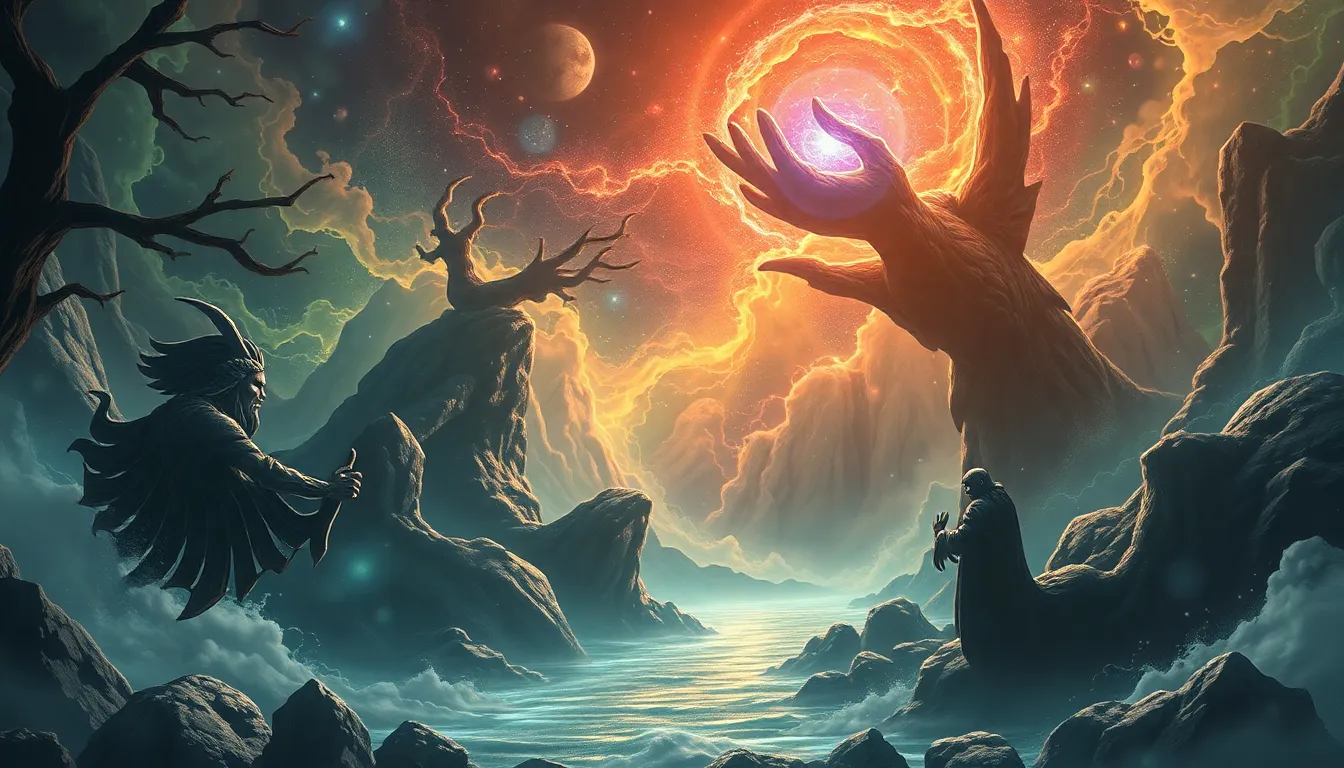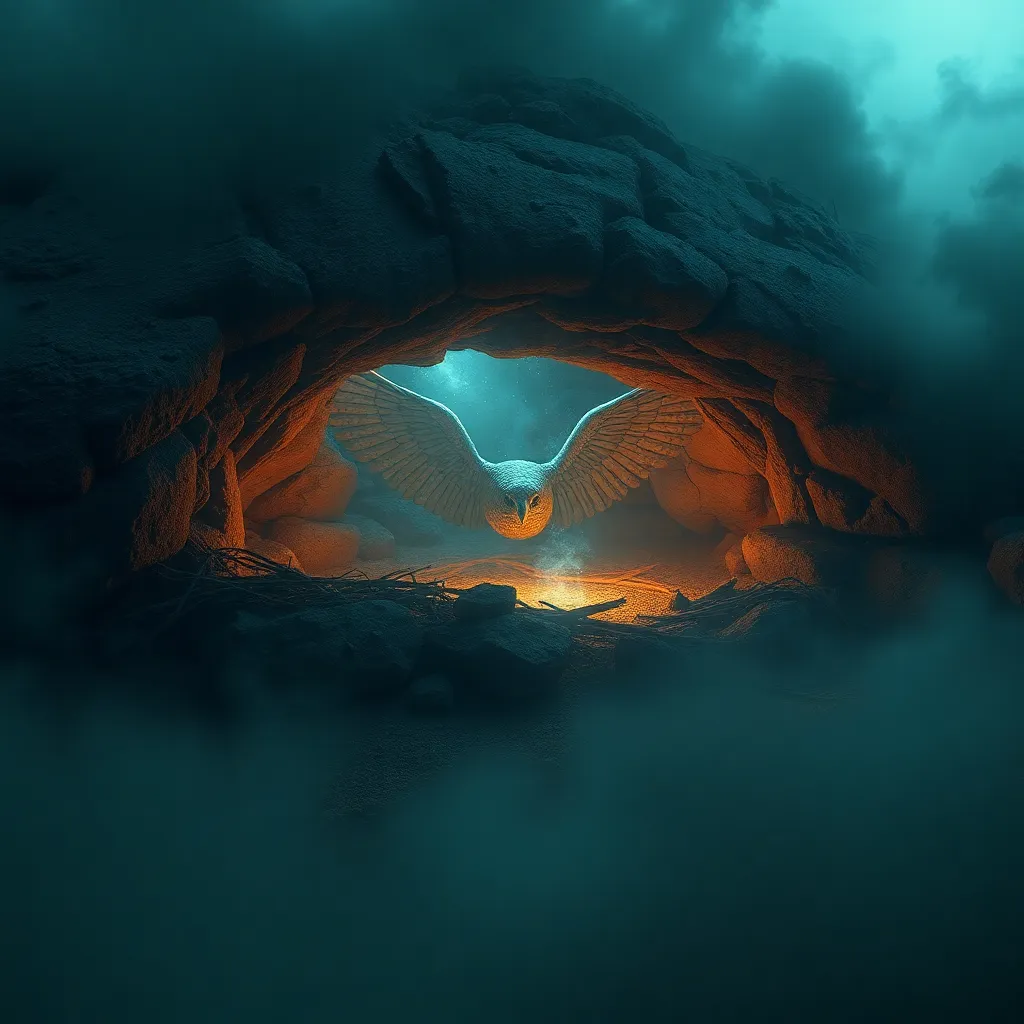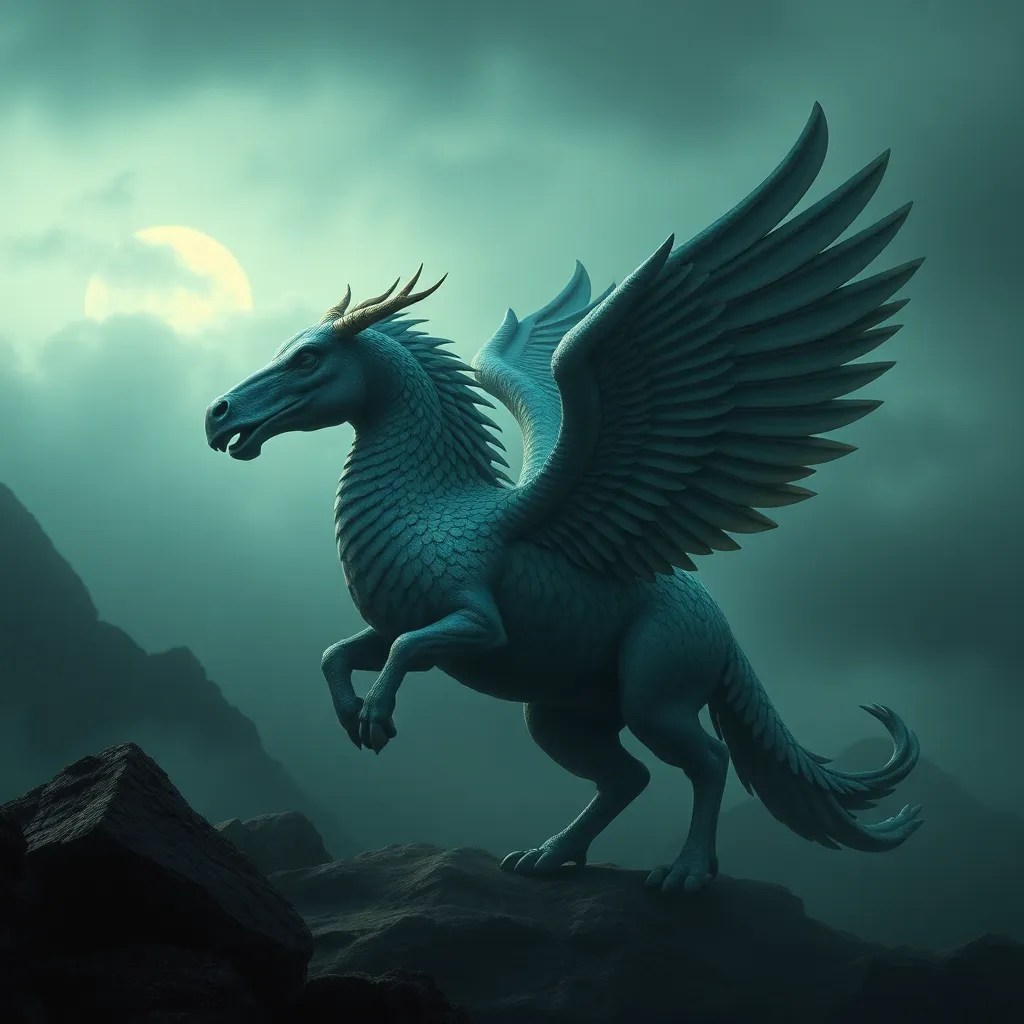The Enchanted Beginning: Creation Myths That Captivate the Imagination
I. Introduction to Creation Myths
Creation myths are foundational narratives that explain the origins of the universe, humanity, and the world around us. These stories have been passed down through generations, shaping the beliefs and values of cultures worldwide. They serve not only as explanations for the unknown but also as reflections of the societies that tell them.
The significance of creation myths lies in their ability to offer insight into the human experience. They delve into the mysteries of existence, providing a framework through which people can understand their place in the cosmos. This article focuses on the captivating narratives found in creation myths across various cultures, exploring their themes, characters, and enduring impact.
II. The Universality of Creation Myths
Creation myths share remarkable similarities across diverse cultures, highlighting common human concerns and questions about existence. These narratives often reflect universal themes such as:
- The emergence of order from chaos
- The role of deities in the creation process
- The interconnectedness of life
Psychologically and socially, these myths fulfill vital functions. They provide a sense of identity, foster community bonding, and offer explanations for natural phenomena. By examining the similarities in creation myths, we can gain a deeper understanding of the shared human experience that transcends cultural boundaries.
III. The Cosmic Egg: Birth of the Universe
One of the most intriguing motifs in creation myths is the concept of the cosmic egg. This symbol represents the primordial state from which the universe emerges. Various cultures interpret this motif in unique ways:
- Hinduism: The universe is said to have originated from a golden egg called “Hiranyagarbha,” which contained all potential life.
- Chinese Mythology: In the tale of Pangu, the universe is born from an egg that held chaos, which Pangu eventually breaks apart to create the heavens and the earth.
- Ancient Greek Traditions: The Orphic egg is a symbol of the cosmos, from which the god Phanes emerges, bringing order to chaos.
The cosmic egg symbolizes potentiality and the unity of existence, reflecting the belief in a single source from which all things arise.
IV. The Role of Deities in Creation
Deities often play a central role in creation myths, depicted as anthropomorphic beings who wield immense power. These gods and goddesses may create the world through conflict, cooperation, or divine thought. Notable examples include:
- The Enuma Elish: In this Babylonian creation myth, the god Marduk creates the world from the body of the slain goddess Tiamat, symbolizing the triumph of order over chaos.
- Genesis: In the Judeo-Christian tradition, God creates the world through divine command, illustrating the concept of creation ex nihilo (creation from nothing).
These narratives not only convey the power of the divine but also reflect cultural values regarding authority, morality, and the nature of existence.
V. The Element of Chaos in Creation
Many creation myths begin with a state of chaos or disorder, illustrating the transformation from formlessness to structure. This theme reflects the inherent tension between chaos and order. For example:
- Norse Mythology: The universe originates from a void called Ginnungagap, where fire and ice collide, leading to the creation of the first beings.
- Egyptian Mythology: In the Heliopolitan creation myth, the god Atum rises from the chaotic waters of Nun to create the world.
- Aboriginal Myths: Many Aboriginal stories describe the Dreamtime, a period of chaos before the emergence of the world and its inhabitants.
These narratives emphasize that chaos is not merely a negative force; it is a necessary precursor to creation and order.
VI. The Importance of Nature and Animals
The natural world and its creatures often play a pivotal role in creation myths. These narratives highlight the interconnectedness of all life and the respect for nature. Animals are frequently portrayed as key characters, symbolizing various aspects of creation. For instance:
- Native American Myths: Many stories feature animals as creators or tricksters, such as the Earth Diver myth, where a duck or a beaver brings up mud to create land.
- African Myths: In some traditions, animals are seen as ancestors or spirits that guide the creation process, reflecting the belief in the sacredness of all life.
- Australian Aboriginal Myths: The Rainbow Serpent is a central figure, embodying the connection between land, water, and life.
These narratives foster a sense of responsibility towards the environment and emphasize the importance of living in harmony with nature.
VII. The Human Element: The Creation of Humanity
Creation myths also explore the origins of humanity, offering diverse narratives that reflect cultural beliefs about human nature and purpose. Some common themes include:
- Creation in the Image of Gods: Many myths depict humans as being made in the likeness of deities, emphasizing a divine connection.
- Chance and Evolution: Other narratives suggest that humans emerged as a result of chance events or accidents, highlighting the randomness of existence.
These stories often reflect deeper questions about humanity’s destiny, morality, and the role of individuals within the cosmos.
VIII. Creation Myths in Modern Literature and Media
The influence of ancient creation myths extends into modern literature and media, where they inspire contemporary storytelling. Many authors and filmmakers draw from these narratives to create compelling tales that resonate with audiences today. For example:
- Books: Works like “American Gods” by Neil Gaiman weave together various mythologies, including creation myths, to explore modern spirituality.
- Films: Movies such as “The Fountain” and “The Tree of Life” delve into existential themes inspired by creation narratives.
- Art: Artists often reinterpret creation myths, using symbolism to convey profound truths about existence and humanity.
This ongoing engagement with creation myths illustrates their timeless relevance and the enduring power of storytelling.
IX. The Impact of Creation Myths on Religion and Philosophy
Creation myths have a profound impact on religious beliefs and philosophical thought. They shape the way people perceive the divine and their relationship with the cosmos. Some of the implications include:
- Religious Beliefs: Creation myths often serve as foundational texts for religious faiths, influencing doctrines, rituals, and moral principles.
- Philosophical Questions: These myths raise existential questions about the nature of existence, the purpose of life, and humanity’s place in the universe.
In today’s spiritual discourse, these myths continue to resonate, prompting reflections on modern existential challenges and the search for meaning.
X. Conclusion: The Enduring Power of Creation Myths
Creation myths captivate the imagination, offering profound insights into the human experience. From the cosmic egg to the role of deities, these narratives reveal common themes that transcend cultural boundaries. They reflect our innate curiosity, our need for connection to nature, and our quest for understanding our place in the universe. As we continue to explore and reinterpret these ancient stories, their relevance remains strong, reminding us of the shared myths that bind humanity together.



